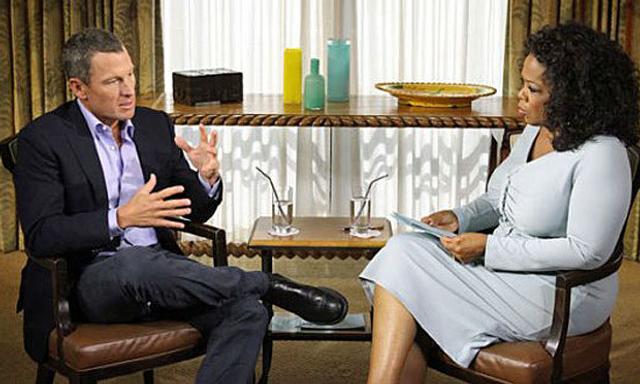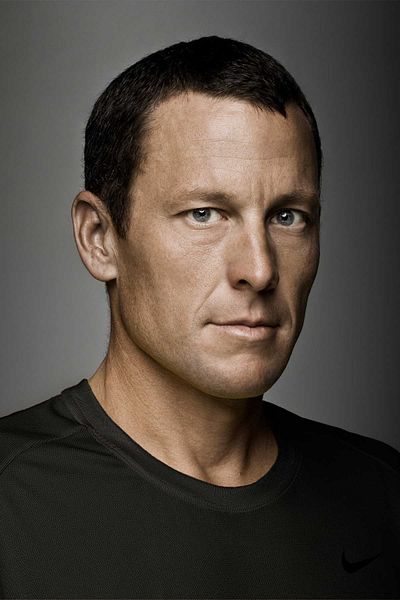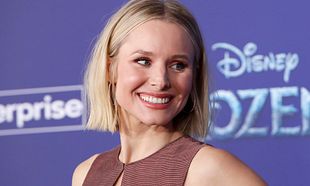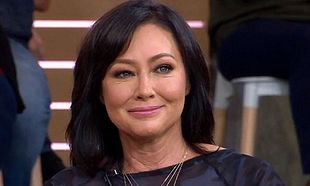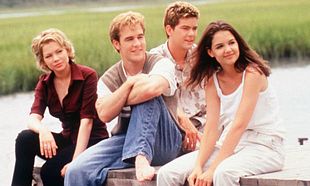Somewhere, Irish sports journalist Paul Kimmage is somewhere doing a dance. You did earn that seat you were perched on in that press conference back in 2009, Mr. Kimmage, but then again you knew that. Everyone knew that, but that didn't stop Lance Armstrong thinking he was impenetrable.
Here's the short version of his "confession" to Oprah last night.
For those of you unable to view video in work, here's the transcript of the brass tacks.
Oprah Winfrey: Did you ever take banned substances to enhance your cycling performance?
Lance Armstrong: "Yes."
Was one of those banned substances EPO?
"Yes."
Did you ever blood dope or use blood transfusions to enhance your cycling performance?
"Yes."
Did you ever use any other banned substances such as testosterone, cortisone or Human Growth Hormone?
"Yes."
In all seven of your Tour de France victories, did you ever take banned substances or blood dope?
"Yes."
Was it humanly possible to win the Tour de France without doping, seven times?
"Not in my opinion. that generation. I didn't invent the culture, but I didn't try to stop the culture."
So, who was instrumental in Armstrong taking "not a lot" of EPO? Doctor Michele Ferrari, apparently. He wasn't before, when Lance vehemently denied taking performance enhancing drugs in several interviews, one of which Lance and Oprah watch below (if you listen to this Oprah herself sounds a bit doped around the 1.30pm mark). Oh, and fame was also to blame.
Many others were to blame.
For 13 years you didn't just deny it, you brazenly and defiantly denied everything you just admitted just now. So why now admit it?
"That is the best question. It's the most logical question. I don't know that I have a great an-swer. I will start my answer by saying that this is too late. It's too late for probably most peo-ple, and that's my fault. I viewed this situation as one big lie that I repeated a lot of times, and as you said, it wasn't as if I just said no and I moved off it."
You were defiant, you called other people liars.
"I understand that. And while I lived through this process, especially the last two years, one year, six months, two, three months, I know the truth. The truth isn't what was out there. The truth isn't what I said, and now it's gone - this story was so perfect for so long. And I mean that, as I try to take myself out of the situation and I look at it. You overcome the disease, you win the Tour de France seven times. You have a happy marriage, you have children. I mean, it's just this mythic perfect story, and it wasn't true."
Was it hard to live up to that picture that was created?
"Impossible. Certainly I'm a flawed character, as I well know, and I couldn't do that."
But didn't you help paint that picture?
"Of course, I did. And a lot of people did. All the fault and all the blame here falls on me. But behind that picture and behind that story is momentum. Whether it's fans or whether it's the media, it just gets going. And I lost myself in all of that. I'm sure there would be other people that couldn't handle it, but I certainly couldn't handle it, and I was used to controlling everything in my life. I controlled every outcome in my life."
You said to me earlier you don't think it was possible to win without doping?
"Not in that generation, and I'm not here to talk about others in that generation. It's been well-documented. I didn't invent the culture, but I didn't try to stop the culture, and that's my mis-take, and that's what I have to be sorry for, and that's what something and the sport is now paying the price because of that. So I am sorry for that. I didn't have access to anything else that nobody else did."
A full transcript of the rest of the interview is available through bbc.co.uk/sport.
